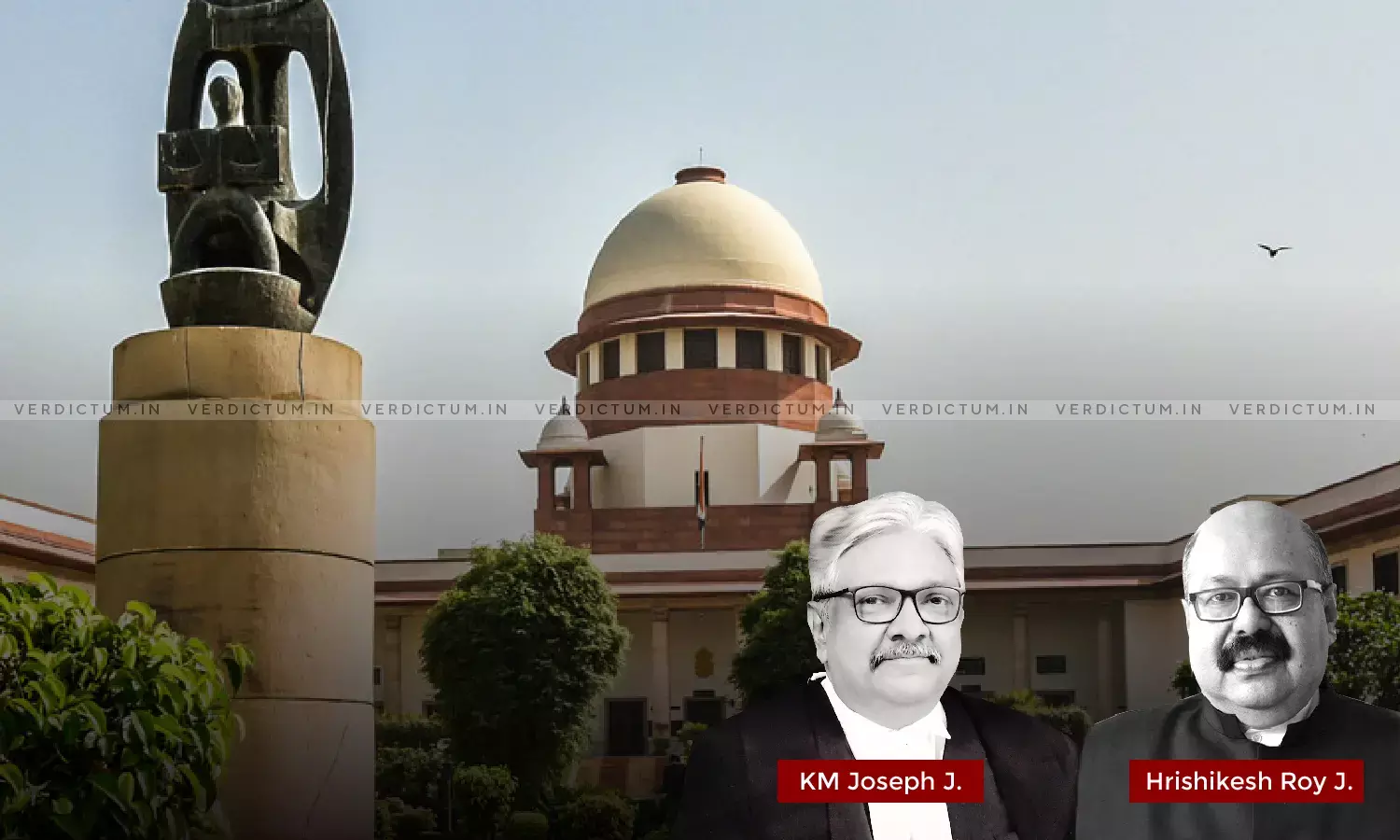Relief Sought Under Non Statutory Contract Does Not Entitle State To Ward-Off Scrutiny Of Its Action Or Inaction Under Contract- SC Explains

A Supreme Court Bench of Justice KM Joseph and Justice Hrishikesh Roy has held that "The mere fact that relief is sought under a contract which is not statutory, will not entitle the respondent-State in a case by itself to ward-off scrutiny of its action or inaction under the contract, if the complaining party is able to establish that the action/ inaction is, per se, arbitrary," while explaining the scope of judicial review of action by the State.
In this case, an appeal was filed against a judgment passed by the Madhya Pradesh High Court, in which the Court set aside an order passed by the Madhya Pradesh Power Management Company Limited, thereby terminating a Power Purchase Agreement (PPA) that it entered into with Sky Power Southeast Solar India Private Limited.
The Supreme Court found that the PPA was not a statutory contract. It added that "even if it is a non-statutory contract, there is no absolute bar in dealing with a cause of action based on acts or omission by the State or its instrumentalities even during the course of the working of a contract." Further, the Court also stressed that a monetary claim arising from a contract might be successfully urged by a writ applicant, but the premise would not be a mere breach of contract. The Court was of the opinion that a matter which lies entirely within a private realm of affairs of a public body may not lend itself for being dealt with under the writ jurisdiction of the Supreme Court.
Issuing a clarification, the Court observed that "An action will lie, undoubtedly, when the State purports to award any largesse and, undoubtedly, this relates to the stage prior to the contract being entered into [See R.D. Shetty (supra)]. This scrutiny, no doubt, would be undertaken within the nature of the judicial review, which has been declared in the decision in Tata Cellular vs. Union of India."
In furtherance, the Court also clarified that there can be a variety of circumstances which may provide a cause of action to a party to the contract with the State, to seek relief by filing a Writ Petition. In light of the same, the Court said that "Without intending to be exhaustive, it may include the relief of seeking payment of amounts due to the aggrieved party from the State. The State can, indeed, be called upon to honour its obligations of making payment, unless it be that there is a serious and genuine dispute raised relating to the liability of the State to make the payment. Such dispute, ordinarily, would include the contention that the aggrieved party has not fulfilled its obligations and the Court finds that such a contention by the State is not a mere ruse or a pretence."
The Court also viewed the existence of a provision for arbitration as a near bar to the entertainment of a Writ Petition. Further, it also held that the need to deal with disputed questions of fact, cannot be made a smokescreen to guillotine a genuine claim raised in a Writ Petition, when actually the resolution of a disputed question of fact is unnecessary to grant relief to a writ applicant.
The Apex Court stressed that it must be made clear that every case involving breach of contract by the State, cannot be dressed up and disguised as a case of arbitrary State action. In that vein, it said that "While the concept of an arbitrary action or inaction cannot be cribbed or confined to any immutable mantra, and must be laid bare, with reference to the facts of each case, it cannot be a mere allegation of breach of contract that would suffice. What must be involved in the case must be action/inaction, which must be palpably unreasonable or absolutely irrational and bereft of any principle. An action, which is completely malafide, can hardly be described as a fair action and may, depending on the facts, amount to arbitrary action. The question must be posed and answered by the Court and all we intend to lay down is that there is a discretion available to the Court to grant relief in appropriate cases."
The Supreme Court also clarified that if the Court has entertained the matter, then, while it is not tabooed that the Court should not relegate the party at a later stage, ordinarily, it would be a germane consideration, which may persuade the Court to complete what it had started, provided it is otherwise a sound exercise of jurisdiction to decide the matter on merits in the Writ Petition itself.
Analysing the totality of facts, the Court took the stance that "we would, therefore, think that though for reasons, which may not be the same as in the impugned judgment, we need not interfere with the view taken by the High Court. The appeals fail and are dismissed." Parties were left to bear their own costs.
Cause Title: MP Power Management Company Limited Jabalpur v. M/s. Sky Power Southeast Solar India Private Limited & Others
Click here to read/download the Judgment

